-

Conference: Economics and Management of Church Assets
Economics permeates our daily lives, and the Church is no exception. A clear example of this is the ongoing economic and financial reforms in the Vatican and the Roman Curia under the leadership of Pope Francis. Church representatives worldwide are increasingly confronted with complex economic, financial, and organizational challenges.
In their book Economics for Ecclesiastics. A Guide (Libreria Editrice Vaticana, 2024), Mons. Martin Schlag, Director of the Markets, Culture and Ethics (MCE) Research Centre at the Pontifical University of the Holy Cross, and Prof. Giuseppe Schlitzer, Director of the Supervisory and Financial Information Authority of the Holy See, aim to inspire clergy to deepen their understanding of economics, undertake further research, and encourage young Christians to study the subject.
-
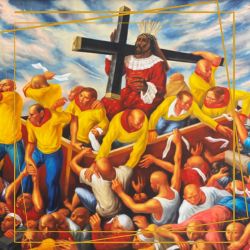
Workshop: Transparency and Accountability in the Philippines' Catholic Church
As the moral conscience and spiritual guide of the nation, the Catholic Church in the Philippines plays a pivotal role not only in leading the faithful but also in setting an example of integrity and responsibility. To effectively fulfill this role, it is crucial that the Church manages its resources with the utmost accountability and transparency.
This workshop on Transparency and Accountability in the Catholic Church is designed to empower Diocesan Bishops and Diocesan Oeconomi (financial administrators) with the tools needed to enhance transparency, strengthen trust among the faithful, and safeguard the Church’s moral and spiritual leadership in society. The goal of this event is to promote sound financial transparency and accountability practices among Church leaders.
-
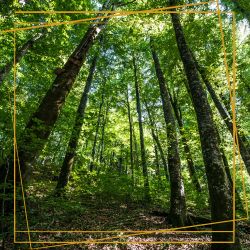
Conference: Sustainability and Integral Ecology in Business and Law
The "Sustainability and Integral Ecology in Business and Law" conference will take place at the University of Piura in Lima, Peru on July 1-2, 2025.
In honor of the 10th anniversary of Pope Francis’s ecological encyclical Laudato Si': On Care for the Common Home, we wish to study the implications of “integral ecology” on business and law. This encyclical introduced the term "integral ecology" into official Catholic social teaching, calling for an awareness of the interconnectedness between humans and nature.
-
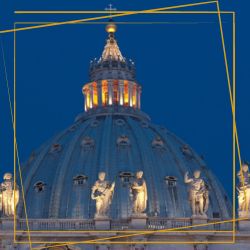
International Workshop: Transparency and Accountability in the Catholic Church - A Practical Journey
The international workshop aims to provide Church leaders with practical strategies to enhance transparency, addressing topics such as ethical, financial, and cultural transparency. Following the success of its first edition in June 2024, it will return for a second edition in Rome from July 15 to 19, 2025.
The initiative is organized in collaboration with the John A. Ryan Institute at St. Thomas University, St. Mary’s University in Twickenham, London, the Pontifical Gregorian University in Rome, and the Vatican’s Financial Supervisory Authority (ASIF).
-
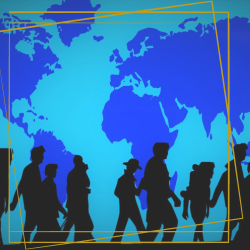
Panel discussion Migration and Labor: solutions through (social) entrepreneurship?
On 21 April at Wien the Markets, Culture and Ethics (MCE) research centre will attend the panel discussion Migration and labor: solutions through (social) entrepreneurship?.
The field of tension between migration, work and the supply of skilled workers- the focus will be on women and girls in the formative years of their lives- in its complexity and multidimensionality is both an exciting challenge and opportunity for entrepreneurs. What role do social and economic dynamics and new forms of inclusion and empowerment play in this matter? Representatives from business, politics, administration and civil society will address this exciting and topical question in its breadth. The event is (co-)organized by the KSÖ together with other cooperation partners.
The event is co-organized by KSÖ - Competence Center Safer Austria, dal Safavi Impact Institute, dal Centro di Ricerca Markets, Culture and Ethics, da Gradus Proximus Corporate Advisory GmbH, e dalla St. Thomas University.
-
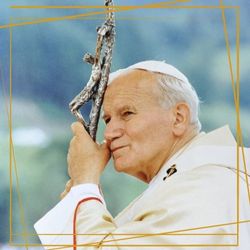
Seminar series Holiness Through Work: Commemorating the Encyclical Laborem Exercens
As part of its seminar activity, the Markets, Culture and Ethics (MCE) research centre will carry out a new seminar series entitled Holiness Though work: Commemorating the Encyclical Laborem Exercens based on the last publication of Msgr. Martin Schlag. The activity will consist of 5 meeting, accessible free of charge, which will be held from March to June at the Pontifical University of the Holy Cross. The seminars will be in Italian.
To mark the 40th anniversary of John Paul II's encyclical on human work, published in 1981, a group of globally-recognized scholars presents the critical aspects of this document and its purpose. These original essays revisit John Paul II's approach to work in post-modern society and reconnect the dignity of the working person to a pursuit of holiness. Only when it is truly Christian can humanism accomplish the lofty ideals it indicates.
-

Digital Humanism Webinar Series
As part of its seminar activity, the Markets, Culture and Ethics (MCE) research center will carry out a webinar series on the theme Digital Humanism starting from November 2022. The activity will consist of 3 meetings, accessible free of charge, which will take place online in November and December.
The fourth industrial revolution, the digital one, has radically changed everyone's life. Who today doesn't have a smartphone constantly at hand? How many of our activities today go through digital tools? These are some of the questions the webinar series will focus on, with the aim of understanding whether all of this is contributing to creating a more humane or inhumane world.A question arises: is all this contributing to a more humane or more inhumane world?o be explored.
-

Empowering People Webinar Series
As part of its seminar activity, the Markets, Culture and Ethics (MCE) Research Centre organizes the webinar series Empowering People starting in May 2022. The series, which is freely accessible, includes five (5) webinars which will take place online in May and June.
Social Business Hybrids are thus viewed as the archetype of Empowering Organization, that is, an organization capable of enabling people through market mechanisms. The market is here understood in a broad and noble sense, as a place of transcendence rather than mere profit. But if the market is an enabling social space, SBHs cannot ignore physical spaces to express their action. Combining the action of SBHs in physical and social spaces represents a challenge that deserves to be explored.
-
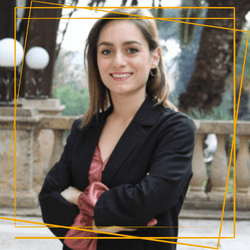
#The PhD Student Series
As part of its article series, the Markets, Culture and Ethics (MCE) Research Centre promotes #The PhD Student Series edited by Giulia Latella, MCE Research Assistant. Insights, reflections and dialogues starting from Epistemology are contextualized within the contemporary debate. Giulia's PhD experience at the University of Navarra (Pamplona) and Luiss Guido Carli (Rome) is the starting point of her reflection, which aims to address topics ranging from the social value of norms to the relationships between technology and the common good. The series' goal is to combine an intellectual reflection with an accessible language.
-

Macro Trends Video Series
The Markets, Culture and Ethics (MCE) Research Center will soon produce a Video Series dedicated to the Macro Trends, edited by Prof. Martin Schlag.
-

Humanistic Management Webinar Series
As part of its seminar activity, the Markets, Culture and Ethics (MCE) Research Centre organized the webinar series Christian Humanism & Management: In the Market, which Culture to act according to Ethics?. The webinar series was held in collaboration with the Center for Business in Society (IESE Business School), Humanistic Management, International Humanistic Management Association and Humanistic Management Center.
For some years now, there has been much talk about a New Humanism. Behind this phrase there are two possible interpretations. One is that of exclusive humanism, the exaltation of the human person in his or her abilities and potential. A positivist, materialistic and progressive perspective of the human being who finally discovers himself as super-man thanks to the work of his own hands and considers himself more and more omnipresent, omniscient, and omnipotent. Alongside this Promethean vision, there is the New Humanism which has its roots in the Christian tradition. From this point of view, the appeal for a new humanism on the part of many popes is a warning to remain human, to rediscover oneself human, all, without distinction of any kind, to put the person (the work of God) at the center of the attention of society, and not the so-called technical-scientific progress (the work of his hands).
-
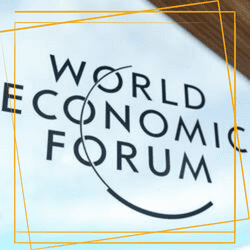
The Great Reset Video Series
In the middle of the pandemic, Klaus Schwab, chairman of the World Economic Forum (WEF), and Thierry Malleret published The Great Reset. In the book, the authors foresee profound and lasting changes in society and the economy, due to the pandemic. The publication had a great impact and led the discussion of the WEF 2021 initiative. The Markets, Culture and Ethics Research Centre (MCE) realized the urgency to join the conversation and decided to launch a video series on “The Great Reset” from the point of view of Catholic Social Thought with Prof. Martin Schlag, MCE Director.
Sezione:

